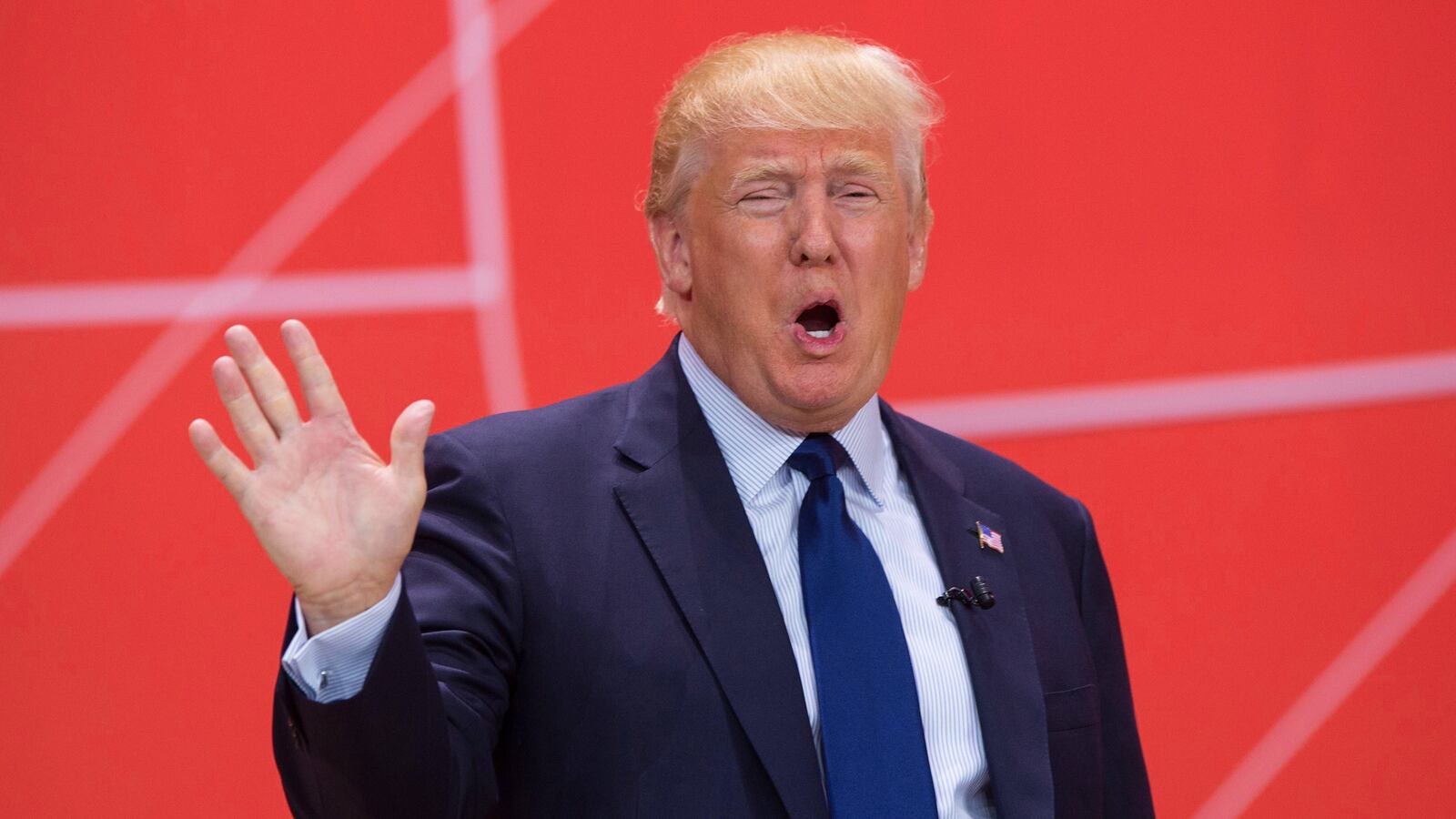CLEVELAND — For all the splendid advances in journalistic technology, there is one piece of hardware we’re in desperate need of: an electronic bracket programmed to deliver a short, sharp shock to any talking head who suggests that what Donald Trump must do Thursday night is to “be presidential.”
It has gotten to the point where it may be illegal not to offer this breathtaking insight, whose originality and relevance is similar to the observation that “in politics, a week is a lifetime,” or that “television is a visual medium.” It is heard on every network, read in every piece of newsprint, on every screen. It is heard before every acceptant speech, and will be heard in the fall before every debate (although it is not usually directed toward an incumbent president for obvious reasons). It suggests that the speaker has carefully studied the attributes of those who have gotten to be president, and that the key is they have to appear… you know.
At one level, this staggering insight opens the door to some intriguing responses. Should the candidate grow a beard and don a stovepipe hat in the manner of Lincoln? Appear astride a horse, as presidents from Washington to Teddy Roosevelt to Reagan have done? Perhaps a nominee might consider putting on a couple hundred pounds, the better to emulate William Howard Taft.
OK, so maybe the advice isn’t meant quite so literally. But even so, the idea that there is some template for “presidentiality” flies in the face of everything we know about what kind of person voters want in the Oval Office. Often, what they want in the next occupant is a sharp departure from the last occupant: from the brooding, secretive, imperial Nixon to the introspective, self-effacing, detail-mastering Jimmy Carter, to the confident, outgoing, easy-in-his-own-skin Ronald Reagan, and forward into the striking differences between George W. “I don’t do nuance” Bush and the contemplative, professorial Barack Obama.
Indeed, the Republican Party is about to nominate a candidate who redefines what it means to be “presidential” in the most fundamental of ways. The intemperate nature of his language suggests to his supporters that he has the energy to confront the despised political class. His lack of knowledge about the most basic facts of government—I would bet a serious sum of money that he’d flunk an eighth-grade civics test—is proof that he is untainted by the endless compromises with a hopelessly corrupt system. The boasting and flaunting of his wealth is proof that he is too rich to steal and that he cannot be bought.
So should Trump—who vowed during the primaries that he would be “so presidential you will be so bored”—try to adopt the bearing of presidents past? Should he quote thinkers and philosophers of another age, as JFK did? Should he confess error, as Jimmy Carter and George H.W. Bush did in their speeches? Neither of these efforts would look anything other than utterly artificial (There’s no evidence that Trump has ever really read a book, or confessed an error).
What a nominee must do, then, is to make his—and next week, her—case for the White House with a sustained argument that tells the electorate: “I see the world much as you do; I share the values you do; and the qualities I possess are what this nation needs at this time.”
That may well mean not trying to fit some anodyne model of the presidency, but redefining what it can be.






